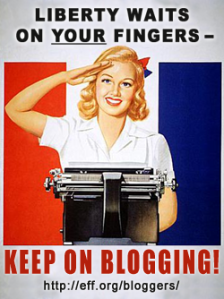If you are one of the many students who are writing a law note or seminar paper this semester, you may feel a bit overwhelmed at the moment. Several questions maybe running through your head such as: how do I identify a “good” topic; where do I begin researching; when should I stop researching; or how do I organize my paper. Well, there is no need to fear. Tomorrow, January 31, 2013, Professor Elizabeth Fajans and Librarian Kathy Darvil will host a workshop on researching and writing your seminar paper. The workshop will be held from 4 pm-6 pm in Room 605.
Listed below are several resources available from the BLS library that can help you research and write your law note or seminar paper. General Resources for Legal Research and Writing
• ELIZABETH FAJANS & MARY FALK, SCHOLARLY WRITING FOR LAW STUDENTS: SEMINAR PAPERS, LAW REVIEW NOTES AND LAW REVIEW COMPETITION PAPERS (4th ed. 2011).
• EUGENE VOLOKH, ACADEMIC LEGAL WRITING: LAW REVIEW ARTICLES, STUDENT NOTES, SEMINAR PAPERS, AND GETTING ON LAW REVIEW (4th ed. 2010).
• JEAN DAVIS, PAPER TOPIC DEVELOPMENT: INTERNATIONAL AND COMPARATIVE: A RESEARCH GUIDE (2012), http://guides.brooklaw.edu/developing
• JEAN DAVIS, PAPER TOPIC SELECTION: INTERNATIONAL AND COMPARATIVE: A RESEARCH GUIDE (2012), http://guides.brooklaw.edu/selecting
• KATHLEEN DARVIL, SELECTING AND DEVELOPING YOUR SEMINAR PAPER TOPIC: A RESEARCH GUIDE (2012), http://guides.brooklaw.edu/seminarpaper
Legal Writing: Style & Grammer
• BRYAN A. GARNER, LEGAL WRITING IN PLAIN ENGLISH: A TEXT WITH EXERCISES (2001).
• BRYAN A. GARNER, THE ELEMENTS OF LEGAL STYLE (2nd ed. 2002).



